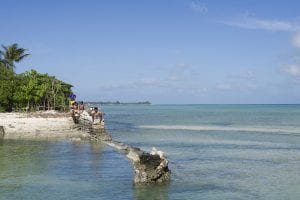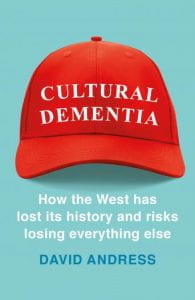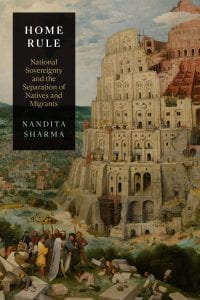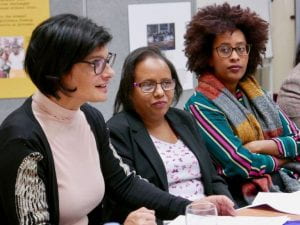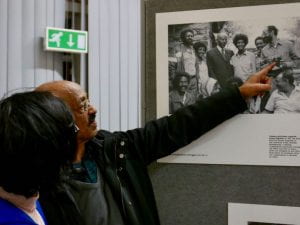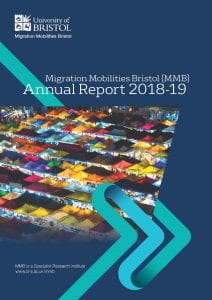By Tim Edmunds and Scott Edwards
On 28 February 2020, SafeSeas hosted an IdeasLab in Bristol on UK maritime security after Brexit, with the kind support of PolicyBristol, Migration Mobilities Bristol, and the Bristol Global Insecurities Centre. Titled ‘Securing Britain’s Seas’, the goal of the day was to ask how maritime insecurities and blue crimes impact on UK interests, explore how current governance arrangements work in response to these, and consider how these may be challenged and transformed both by a rapidly changing security environment and the challenges of Brexit.
The IdeasLab provided an opportunity for policymakers, practitioners, and academics from a wide range of disciplinary backgrounds, including security studies, law, social policy and politics, to engage with one another. Participants from all major UK maritime security agencies, including high level participation, exchanged views and knowledge with leading academics in order to advance understanding of the UK’s maritime security environment.

Panels focused on three core themes of importance for British maritime security. The first covered ‘Threats, risks and opportunities’, chaired by SafeSeas Co-Director Professor Timothy Edmunds, and featured Dan O’Mahoney (Director, Joint Maritime Security Centre), James Driver (Head of Maritime Security and Resilience Division, Department for Transport) and Dr. Sofia Galani (University of Bristol). Discussions revolved around the complexity of maritime security governance in the UK context. This complexity is visible in relation to the diversity of challenges at hand – including the protection of maritime trade routes, the prospect of a terrorist attack at sea, threats to marine critical infrastructure, human trafficking and movement of people, the smuggling of illicit goods, the maintenance of public order at sea, and marine environmental management including fisheries protection – and also to the web of different authorities, departments, agencies and private actors engaged in the UK maritime space.
These challenges are often ‘invisible’ in the sense that the general public and politicians are often less invested in the maritime arena than other areas of public policy. Gaps also exist in the legal framework governing the maritime domain – for example around port management – and more work needs to be done to encourage inter-operability and coordination between agencies. However, the panel also highlighted a moment of opportunity in this area too, with a renewed focus on maritime security issues following the 2019 oil tanker crisis in the Straits of Hormuz, the implications of the Brexit process and the prospect of a new UK Maritime Security Strategy in the near future.
The second panel, chaired by Professor Bridget Anderson (University of Bristol), focused on ‘Boundaries, borders and maritime regions’ and featured Professor Sir Malcolm Evans (University of Bristol), Joe Legg (Maritime desk, Foreign and Commonwealth Office), and Ann Singleton (University of Bristol). The discussion raised interesting questions on what should be considered British seas, and how these boundaries have been, or are being, constructed. Panellists agreed on the fundamentally transnational nature of the UK maritime region, incorporating UK home waters, but also critically important maritime spaces such as the North Sea and Mediterranean as well as overseas territories and the international maritime trade routes.
Above all the panel emphasised the need to manage the UK’s maritime boundaries and borders humanely and with proper regard to safety at sea, particularly in relation to the movement of vulnerable people and migrants. There was also intense discussion over the extent to which security responses are appropriate for such issues and the inter-linkages between maritime security and other areas such as migration policy.
Finally the third panel, chaired by Professor Christian Bueger (University of Copenhagen & SafeSeas co-director), addressed ‘Governance and coordination’ and featured Caroline Cowan (Fisheries Lead, Scottish Government), and Professor Richard Barnes (University of Hull). The panel and discussion highlighted the need for coordinated and inclusive governance in the maritime domain, and for more work to be done on the inter-connected nature of many maritime security threats and scalable nature of responses across these. The panel also highlighted the potential for localised issues (such as conflicts over fisheries access) to escalate to national or regional level problems (and vice versa).
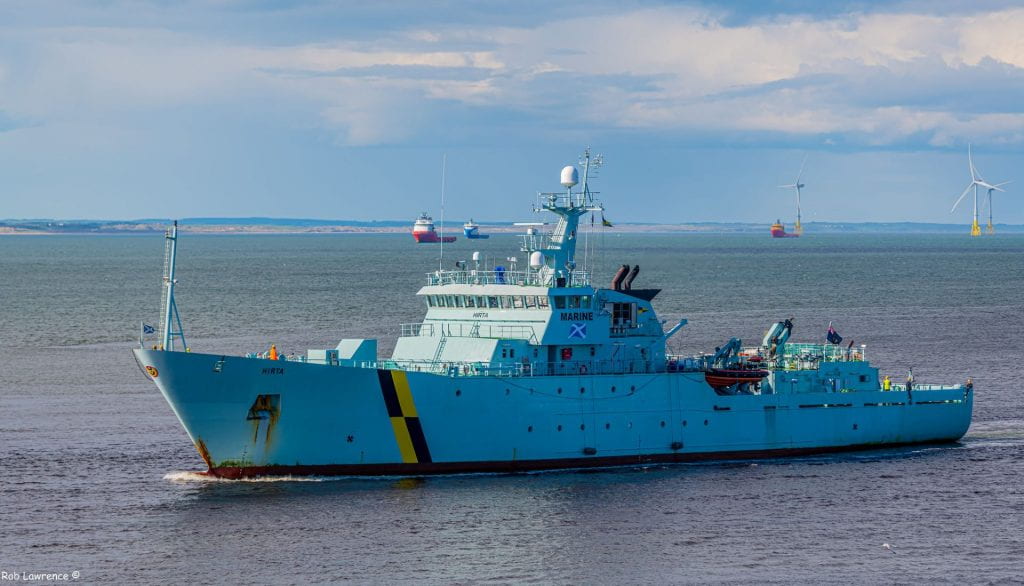
Discussions again emphasised the broad and diverse nature of the interest groups engaged in maritime security and the difficulties of ensuring fair and effective governance across these and their various identities and interests. Participants highlighted the importance of Scotland in the UK maritime security picture, with 62 per cent of the UK’s (home) Exclusive Economic Zone (EEZ) located off the Scottish coast, the remote nature of much of this territory, and the devolved nature of many marine environmental management and policing issues. Moreover, and even within government, there is sometimes a lack of understanding over jurisdictional issues between national and devolved authorities engaged in UK maritime security governance.
Overall, the IdeasLab discussions were extremely rich and productive. They highlighted the complexity of the maritime security challenge, the multiple, diverse and sometimes conflicting nature of security governance in this area and the potentially transformative impact of the UK’s exit from the EU on existing practices, arrangements and relationships. Insights from the ideaslab will be expanded upon and presented in an upcoming policy brief produced by SafeSeas.
Tim Edmunds is Professor of International Security and Director of the Global Insecurities Centre at the University of Bristol. Scott Edwards is an Associate Teacher and Research Associate for the Transnational Organised Crime at Sea project at Bristol.
SafeSeas is a network of academic institutions that studies maritime security governance and efforts to support it through capacity building. This post is republished from the SafeSeas blog.


